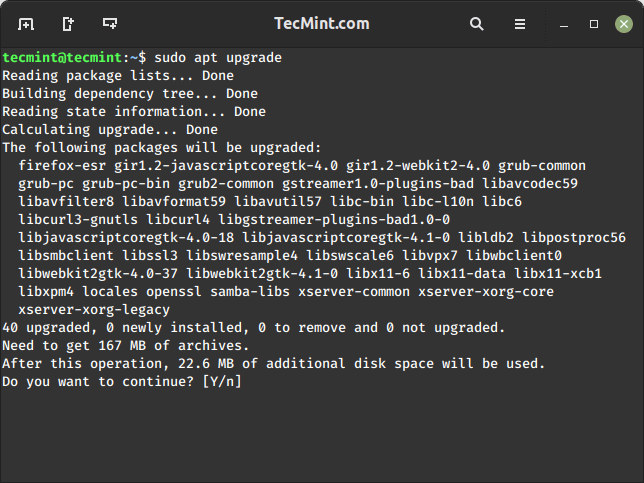In this post, we shall cover a few of the top, open-source artificial intelligence (AI) tools for the Linux ecosystem. Currently, AI is one of the ever-advancing fields in science and technology, with a major focus geared towards building software and hardware to solve everyday life challenges in areas such as health care, education, security, manufacturing, banking and so much more.
Below is a list of a number of platforms designed and developed for supporting AI, that you can utilize on Linux and possibly many other operating systems. Remember this list is not arranged in any specific order of interest.
1. Deep Learning For Java (Deeplearning4j)
Deeplearning4j is a commercial-grade, open-source, plug-and-play, distributed deep-learning library for Java and Scala programming languages. It is designed specifically for business-related applications, and integrated with Hadoop and Spark on top of distributed CPUs and GPUs.
DL4J is released under the Apache 2.0 license provides GPU support for scaling on AWS and is adapted for micro-service architecture.
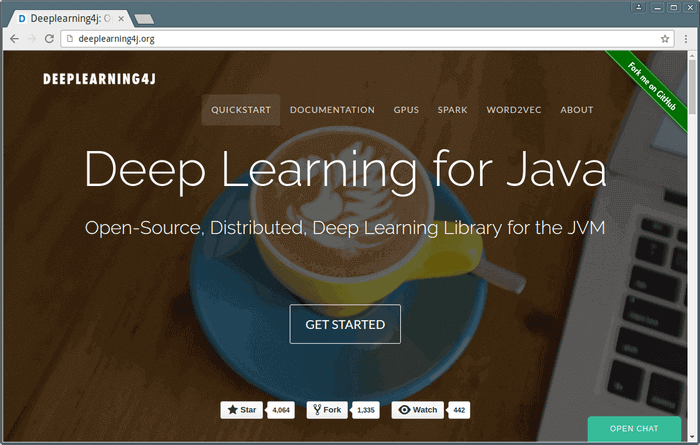
2. Caffe – Deep Learning Framework
Caffe is a modular and expressive deep-learning framework based on speed. It is released under the BSD 2-Clause license, and it’s already supporting several community projects in areas such as research, startup prototypes, and industrial applications in fields such as vision, speech, and multimedia.
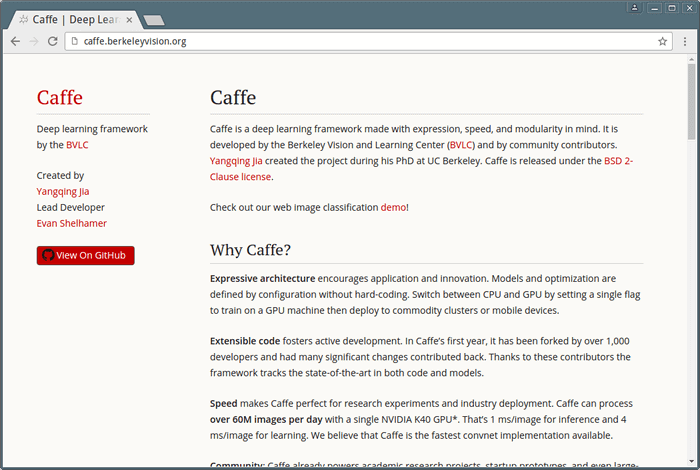
3. H20 – Distributed Machine Learning Framework
H20 is an open-source, fast, scalable, and distributed machine learning framework, plus the assortment of algorithms equipped on the framework. It supports smarter applications such as deep learning, gradient boosting, random forests, generalized linear modeling (i.e. logistic regression, Elastic Net), and many more.
It is a business-oriented artificial intelligence tool for decision-making from data, it enables users to draw insights from their data using faster and better predictive modeling.

4. MLlib – Machine Learning Library
MLlib is an open-source, easy-to-use, and high-performance machine-learning library developed as part of Apache Spark. It is essentially easy to deploy and can run on existing Hadoop clusters and data.
MLlib also ships with a collection of algorithms for classification, regression, recommendation, clustering, survival analysis and so much more. Importantly, it can be used in Python, Java, Scala, and R programming languages.
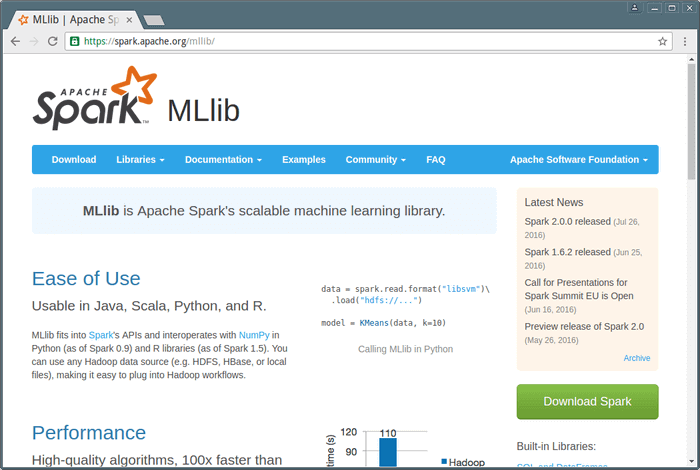
5. Apache Mahout
Apache Mahout is an open-source framework designed for building scalable machine learning applications, it has three prominent features listed below:
- Provides a simple and extensible programming workplace.
- Offers a variety of prepackaged algorithms for Scala + Apache Spark, H20 as well as Apache Flink.
- Includes Samaras, a vector math experimentation workplace with R-like syntax.
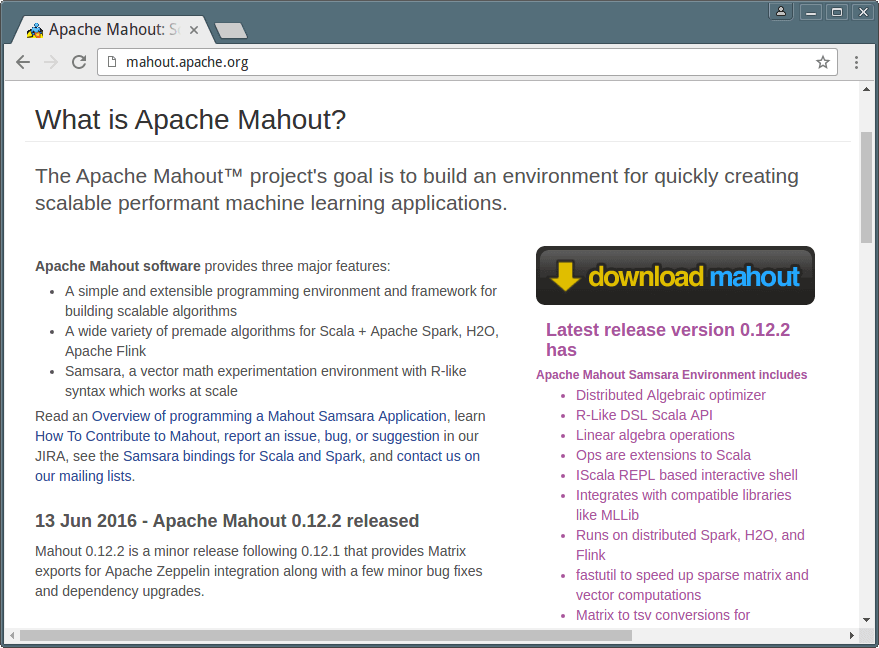
6. Open Neural Networks Library (OpenNN)
OpenNN is also an open-source class library written in C++ for deep learning, it is used to instigate neural networks. However, it is only optimal for experienced C++ programmers and persons with tremendous machine-learning skills. It’s characterized by a deep architecture and high performance.
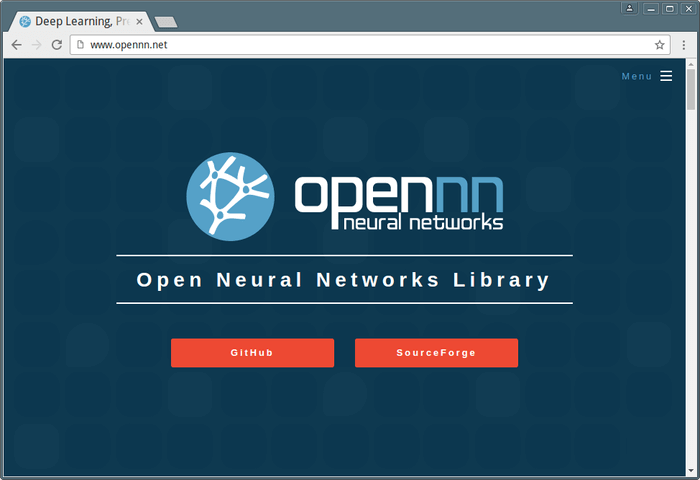
7. TensorFlow
TensorFlow is an open-source machine learning framework that has gained immense popularity in the field of artificial intelligence (AI) and deep learning.
TensorFlow, developed by Google, has emerged as the preferred tool for data scientists and developers for building and deploying machine learning models.
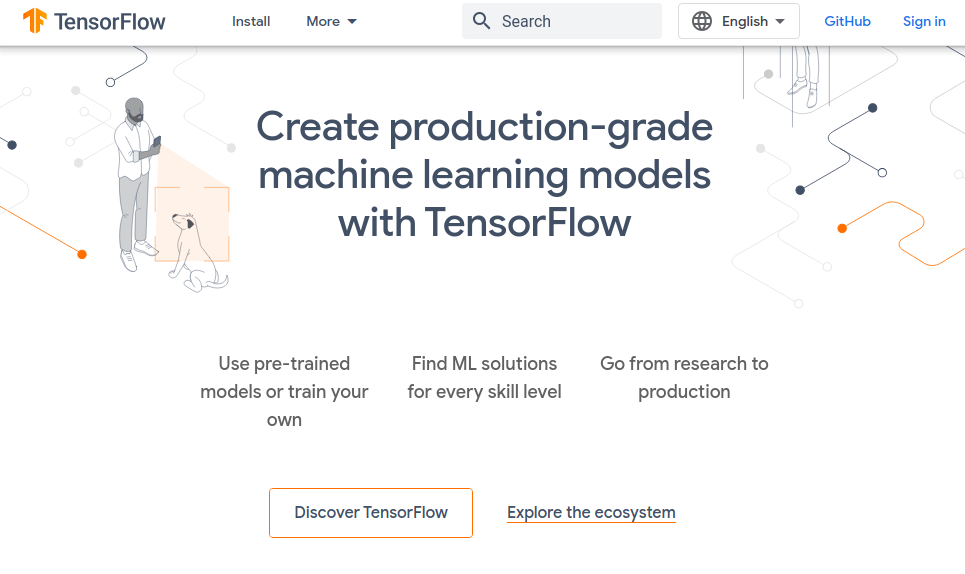
8. PyTorch
PyTorch is a cutting-edge open-source deep learning framework, that has revolutionized the world of artificial intelligence and machine learning. Developed by Facebook’s AI Research lab, PyTorch empowers data scientists, researchers, and developers with a dynamic approach to building and training neural networks.
Its flexibility, robustness, and seamless integration with popular libraries make it a go-to choice for AI projects. PyTorch’s dynamic computational graph enables swift experimentation and easy debugging, accelerating model development.

9. Apache SystemDS
SystemDS is an open-source machine learning platform that offers a unified interface for executing and optimizing machine learning algorithms.
Developed by IBM, SystemDS aims to address the challenges of scaling and optimizing machine learning workflows across large datasets and distributed computing environments.
It leverages declarative programming and automatic optimization techniques to simplify the development and deployment of machine learning models. With SystemDS, users can seamlessly run their code on a single machine or distribute it across a cluster, allowing for efficient and scalable execution. Its flexibility and scalability make it a valuable tool for data scientists and researchers working with large-scale machine-learning tasks
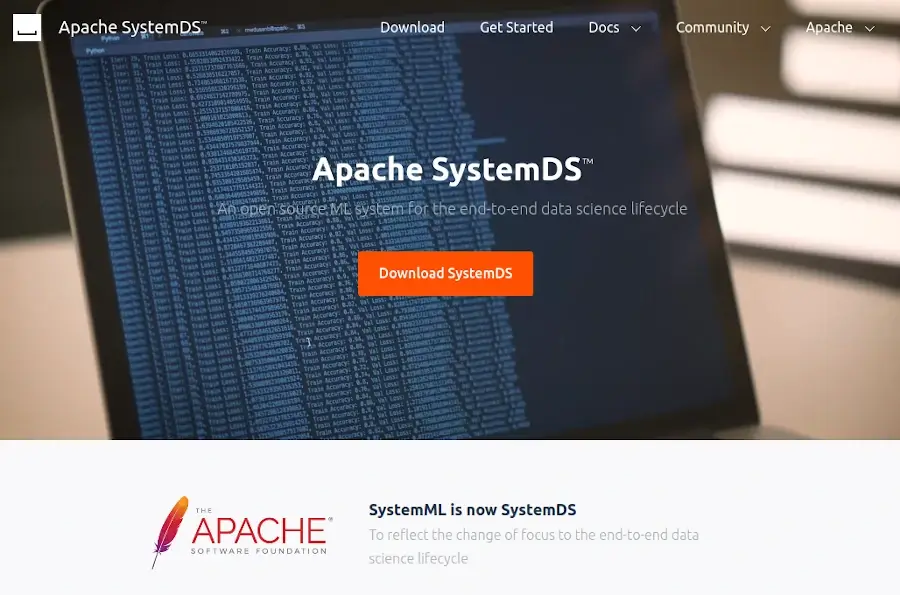
10. NuPIC
NuPIC is an open-source framework for machine learning that is based on Hierarchical Temporary Memory (HTM), a neocortex theory.
The HTM program integrated into NuPIC is implemented for analyzing real-time streaming data, where it learns time-based patterns existing in data, predicts the imminent values as well, and reveals any irregularities.
Its notable features include:
- Continuous online learning
- Temporal and spatial patterns
- Real-time streaming data
- Prediction and modeling
- Powerful anomaly detection
- Hierarchical temporal memory
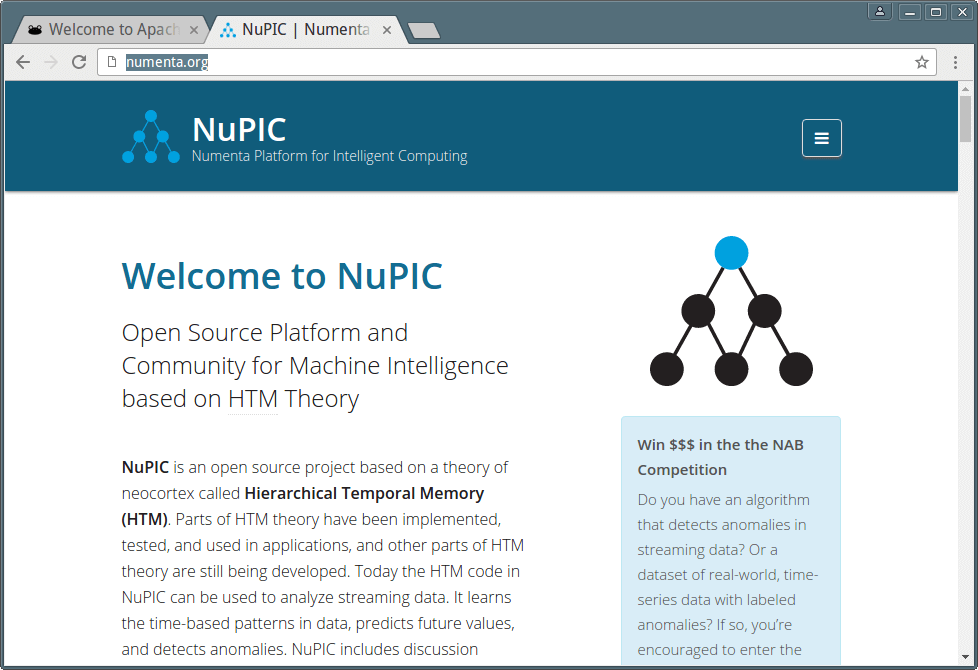
Conclusion
With the rise and ever-advancing research in AI, we are bound to witness more tools spring up to help make this area of technology a success, especially for solving daily scientific challenges along with educational purposes.
Are you interested in AI, what is your say? Offer us your thoughts, suggestions, or any productive feedback about the subject matter via the comment section below and we shall be delighted to know more from you.
